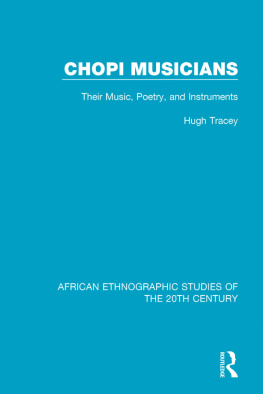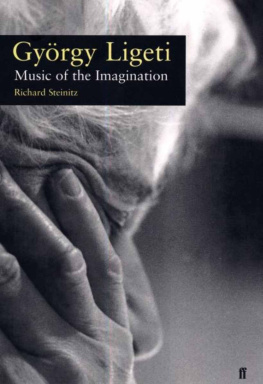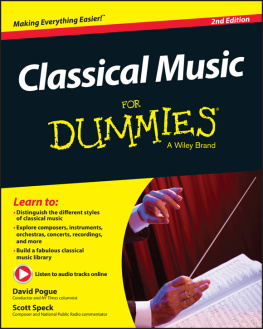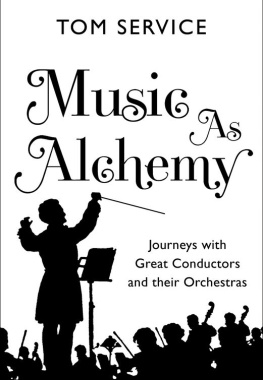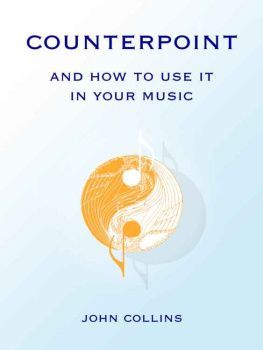Louis Leopold Biancolli
Tschaikowsky and His Orchestral Music
Published by Good Press, 2022
EAN 4064066201609
Table of Contents
Foreword
Included in this little book are analyses and backgrounds of most of Tschaikowskys standard concert music. A short sketch of Tschaikowskys life precedes the section devoted to the orchestral music. Yet, the personal outlook and moods of Russias great composer are so inextricably bound up with his music, that actually the whole booklet is an account of his strangely tormented life. In the story of Tschaikowsky, life and art weave into one closely knit fabric. It is hoped that this simple narrative will aid music lovers to glimpse the great pathos and struggle behind the music of this sad and lonely man.
Tschaikowsky
AND HIS ORCHESTRAL MUSIC
Few great names in music spell as much magic to the average concert-goer as that of Peter Ilyitch Tschaikowsky. In almost every musical form will be found a work of his ranking high in popularity. And quite deservedly so. Tschaikowskys music brims with a warm humanity and stirring drama. The themes and feelings are easy to grasp. The personal, intimate note is so strong in this music that we find it natural, while listening to the Pathetic symphony or the Nutcracker ballet suite, for example, to share Tschaikowskys joys and sorrows. His music seems to take us into his confidence and show us the secret places of his heart. Although Tschaikowskys range of moods is widefrom the whimsical play of light fantasy to stormy outcries of anguishessentially he was a melancholy man, in his music as in his life. Perhaps it is the genuineness of his music in conveying great pathos and suffering that has drawn millions to his symphonies and concertos. A frank sincerity and warmheartedness well from his music. The best of his melodies linger hauntingly in the mind and heart. So long as sincere feeling expressed in sincere artistic form can move the hearts of men, Tschaikowskys music will continue to hold a high place in the concert hall and opera house.
Only Beethoven and Mozart can rival Tschaikowsky in the number of compositions in various musical forms that stand out as repertory favorites. Tschaikowskys violin concerto is as much a request item as Beethovens. The Pathetic symphony ranks with the three or four enduring favorites of the repertory. Tschaikowskys Nutcracker ballet is probably the most popular suite of its kind in music. The opera, Eugene Onegin, a masterpiece worthy to stand beside some of the best Italian and German operas, is widely loved even outside Russia. Tschaikowskys Piano Concerto, or, at any rate, the big opening theme, is doubtless known to more people than all other piano concertos put together. The overture-fantasies, Romeo and Juliet and Francesca da Rimini, rank with the most popular in that form, and the Overture 1812 is an international hit with music-lovers of all ages and stages. Tschaikowskys song, None But the Lonely Heart, is better known to many music-lovers than most of the songs of Brahms and Schubert, and the great String Quartet contains a melody familiar to every follower of popular song trends. For, of all the classical composers, Tschaikowsky has been a veritable gold-mine as a lucrative source of themes for popular arrangement.
Yet, this sad and sensitive musical genius who knew so well how to reach the human soul surprisingly began his career as a clerk in the St. Petersburg Ministry of Justice. Like other great Russian composers, Tschaikowsky arrived at music by a circuitous route, almost by accident. Moussorgsky, one recalls, was long an officer in the Czars Army before he switched to music. And Borodin always regarded music as a secondary pursuit to his medical practice and his laboratory experiments in chemistry. Tschaikowsky was first a lawyer. But soon he found court action and the preparation of briefs tiresome and unsavory toil, so at twenty-one he returned to his first love, which was music.
Born on May 7, 1840, Tschaikowsky had begun to study piano at the age of seven. When he was ten, his father, a director of a foundry at Votinsk with next to no interest in music, took the family to St. Petersburg. There young Peter continued his musical studies, never, though, with any thought of preparing for a career in music. Yet, later, even while studying law, he went on playing the piano and taking part in the performances of a choral society. Although he amused friends by improvising on the piano, few detected any signs of creative genius. At twenty-one Tschaikowsky made his crucial break. He abandoned law, began earnestly to master musical theory, and resolved to risk poverty and starvation by devoting himself to music professionally. Today we can only applaud his decision. The repertory would be the poorer without his music. Besides, it is not likely that the law lost a great practitioner when Tschaikowsky bade it farewell.
His first important step was to enroll in the Russian Musical Society, later to become the St. Petersburg Conservatory. There Anton Rubinstein, the renowned pianist and composer, then teaching composition and orchestration, exerted a lasting influence on him. At that time Antons brother Nicholas was founding the Moscow Conservatory. Impressed by Tschaikowskys brilliant showing at the St. Petersburg school, he engaged him as instructor in harmony for the new Moscow organization. Tschaikowsky held the post for eleven years. The pay was scant, but there were weightier compensations. Nicholas Rubinstein gave the young man a room in his Moscow house, encouraged him to compose, introduced him around, and gave him sound advice on sundry matters. Best of all, he produced many of Tschaikowskys early compositions. Tschaikowsky, loyal and devoted in all his ties, never forgot his friend. After Rubinsteins death, he dedicated his Trio, In Memory of a Great Artist, to the great man who had given him his real start in music and a creative life.
During his second year in the Moscow Conservatory Tschaikowsky fell madly in love with the French soprano Dsire Artt, then touring Russia. While the indecisive Russian wasted time weighing the advantages and disadvantages of marriage, a Spanish baritone named Padilla came along, made violent love to Mlle. Artt, and hurried her off to the altar before she could catch her breath and notify her Russian suitor. We nevertheless owe the fickle French lady a debt of gratitude. Without the emotional disturbance Tschaikowsky might not have been moved to write the Romeo and Juliet overture-fantasy. His first serious rebuff in love had at any rate paid dividends in art.
From then on Tschaikowsky wrote at a feverish pace. Whenever his duties at the Conservatory could spare him, he retired to his study and wrote symphonies, overtures, operas, chamber music, songs, and religious choruses. Sometimes a gnawing doubt in his own talents assailed him. To his friends he wrote voluminous letters complaining of the strong sense of inferiority bedevilling his work. There were attacks of bleak gloom and diffidence lasting weeks. Trips to the country or to Italy and Switzerland were often needed to restore his damaged nervous system and jarred self-confidence to normalcy. Unfavorable reviews stung him like wasps. And while Moscow often evidenced great enthusiasm for his music, St. Petersburg was harder to please. The press there was often virulent with abuse.
Then Tschaikowsky pinned great hopes on his operas Eugene Onegin and Pique Dame (The Queen of Spades). Both proved fiascos at their premires, though the public and press later revised their opinions drastically. Moreover, reports reached him of the cold reception accorded his


